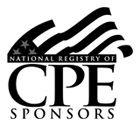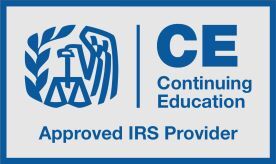

View Details/Register
View Details/Register
View Details/Register
View Details/Register
View Details/Register
View Details/Register
View Details/Register
View Details/Register
View Details/Register
View Details/Register



CPA - small firm
CPA - medium firm
CPA - large firm
Enrolled Agent
With record-high exemptions, the Generation-Skipping Transfer (GST) tax is often an afterthought, especially because this tax can be avoided or significantly deferred through dynasty trust planning. However, many older trusts, which were created before the enactment of the GST tax or with a much lower GST tax exemption, are now reaching the point of termination or division at the death of a first-generation beneficiary. These outcomes can create challenges in analyzing the application or grandfathering of the deferred or avoided GST tax.
This presentation will discuss common issues and blind spots that can occur when assisting trustees or beneficiaries with GST tax issues relating to older trusts.
-
Identify key parties to a trust that affect the Generation-Skipping Transfer (GST) tax at a basic and intermediate level
-
Recognize common GST tax events that apply to a trust and reporting requirements for these GST tax events
-
List factors affecting exemption or reduction of GST tax within a trust
-
Evaluate the effect of certain transactions, transfers, and tax reporting events on the GST tax within a trust
-
List strategies for mitigating GST tax in trusts that are not fully exempt from this tax

Griffin Bridgers
Hutchins & Associates LLC
Of Counsel
[email protected]
(303) 893-6500
Griffin Bridgers, J.D., LL.M., is Of Counsel to the law firm of Hutchins & Associates in Denver, Colorado, and outside of the practice of law serves as a consultant for independent wealth advisors and CPAs on estate planning and transfer taxes. Griffin educates peers in all wealth transfer industries through his newsletter, State of Estates (https://griffinbridgers.substack.com), and his YouTube channel (https://youtube.com/@griffinbridgers).
- To receive CPE credit, you must register for the webinar before it starts.
- CPE is available to all eligible participants within 24 hours of each webinar.
- To receive CPE for multiple attendees, at least one person must sign up for the webinar. The post-webinar email contains a link to instructions for the proctor letter. Alternatively, you may log in to your account following the webinar and click on the MY ACCOUNT button to find a link to instructions. For paid courses, payment needs to be made for each attendee before credit will be issued.

NASBA Approved
CPAacademy.org (Sponsor Id#: 111889) is registered with the National Association of State Boards of Accountancy (NASBA) as a sponsor of continuing professional education on the National Registry of CPE Sponsors. State boards of accountancy have final authority on the acceptance of individual courses for CPE credit. Complaints regarding registered sponsors may be submitted to the National Registry of CPE Sponsors through its website: www.nasbaregistry.org.
CPAacademy.org 1685 S. Colorado Blvd, Suite #205, Denver, CO 80222

EA Approved
CPAacademy.org (Sponsor Id#: HURS9) has entered into an agreement with the Internal Revenue Service, to meet the requirements of 31 Code of Federal Regulations, section 10.6(g), covering maintenance of attendance records, retention of program outlines, qualifications of instructors, and length of class hours. This agreement does not constitute an endorsement by the IRS as to the quality of the program or its contribution to the professional competence of the enrolled individual. Credit earned by attendees with a PTIN will be reported directly to the IRS as required of all providers. To ensure your CPE hours are reported, update your profile in My Account to include your PTIN number. Please note: IRS CE is only mandatory for EAs and ERPAs. For all other tax return preparers, CE is voluntary.
CPAacademy.org 1685 S. Colorado Blvd, Suite #205, Denver, CO 80222


